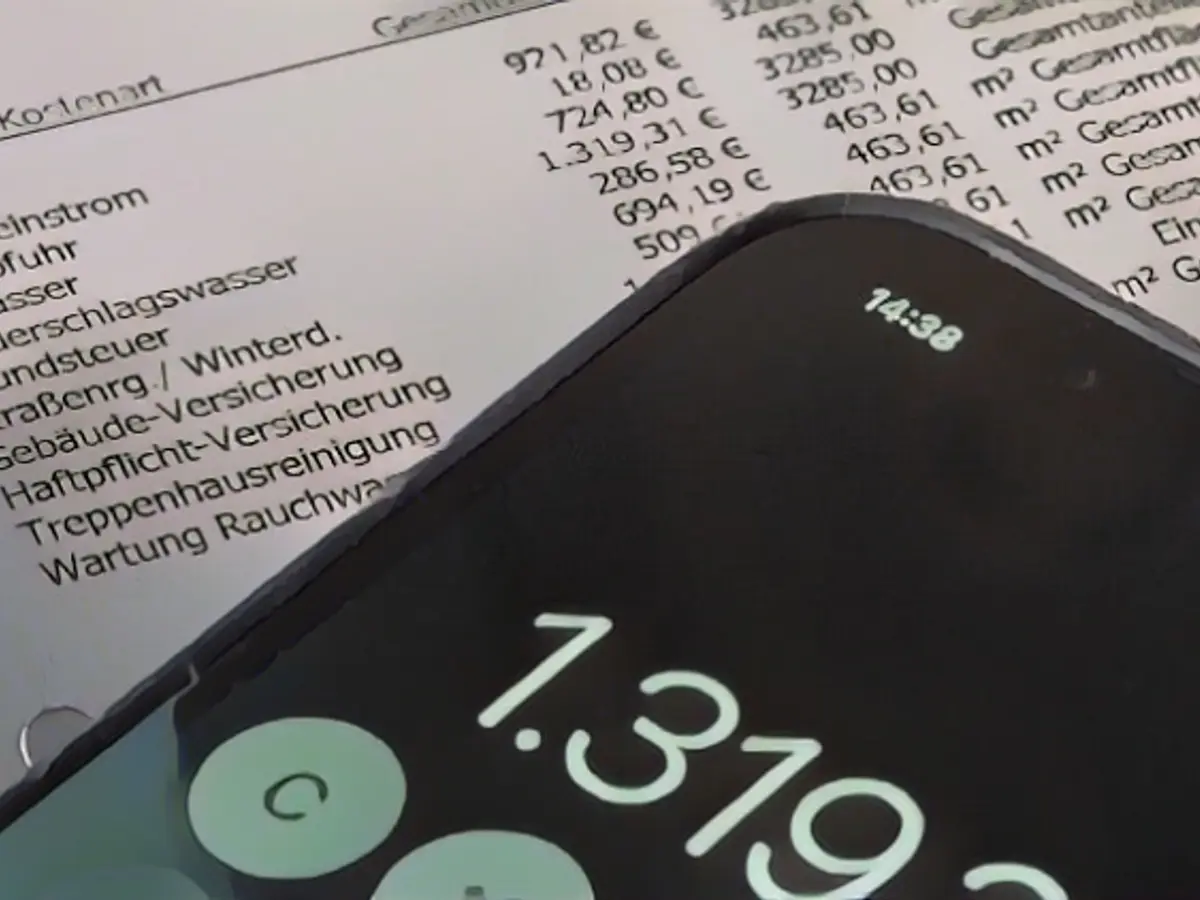Warm operating costs 43 percent higher than in 2021
Due to the Russian invasion of Ukraine, energy prices will rise significantly in 2022. Many tenants will also notice this in their utility bills. One year later, gas and oil are cheaper again. However, according to a study, utility costs will hardly fall.
Service charges for tenants with new contracts remain at a high level following the rise in energy prices in 2022. The discounts for cold service charges have risen further in the current year, while heating costs have only fallen slightly compared to the previous year, according to an analysis by the German Economic Institute (IW). The study examined advertisements for new rental contracts. The discounts for warm utility costs were almost half higher than before the war in Ukraine, it said.
According to the IW, in September 2023, an average of EUR 1.67 per square meter of living space was set for warm utility costs - heating and hot water - in new rental agreements. This was four percent less than a year earlier (EUR 1.74). In addition, there are cold ancillary costs, which cover the owner's costs such as cleaning, as well as municipal costs such as property tax and waste and sewage charges. They amounted to EUR 1.78 per square meter, three percent more than in 2022 (EUR 1.72). In total, the discounts fell slightly to EUR 3.45 per square meter.
Up until the winter of 2021/2022, before the start of the war in Ukraine, down payments for warm utility costs had remained stable at an average of EUR 1.17 per square meter of living space, according to the study. "Current figures from the third quarter of 2023 show that warm utility costs are still around 43 percent higher than before the winter of 2021/2022."
Falling energy prices only reach tenants with a delay
"Last year, we saw a sharp rise in warm utility costs, but not much has changed since then," said IW real estate expert Michael Voigtländer. Although energy has already become significantly cheaper on the stock market, this is only slowly being reflected in tenants' long-term supply contracts.
For the study, IW was commissioned by Deutsche Invest Immobilien AG to examine hot and cold ancillary costs for rental apartments in 400 cities and districts in Germany for the fourth time. Almost 1.93 million advertisements were analyzed between January 2018 and September 2023. Service charges are often a point of contention between tenants and landlords and are charged retrospectively. In existing contracts, the rise in energy prices following the war in Ukraine only has a delayed effect. According to the IW, ancillary housing costs continue to account for a high percentage of the total rent. While the national average share was a record 27% last year, it was still 25% at the end of 2023, according to the IW. The decline can be explained by the sharp rise in net cold rents of five percent.
Significant differences between rural areas and large cities
Warm ancillary costs have a significant impact on the affordability of rental apartments, especially in regions with low rents, the authors wrote. Voigtländer expects service charges to continue to rise. Due to the expiry of the state energy price brakes at the end of the year, households are threatened with an increase at the beginning of 2024, especially if tenants are unable to conclude a new energy supply contract themselves. It is advisable for tenants to "actively approach their landlords and look into ways of reducing their heating costs". In addition, CO2 pricing for oil and gas as well as higher personnel costs for local authorities are likely to drive up ancillary costs.
According to the analysis, there are major regional differences within Germany. At around 1.50 euros, cold service charges in rural areas are significantly lower on average than in large cities, which is also due to the type of property, according to the IW. Apartment buildings often require more extensive maintenance, such as the upkeep of elevators or the maintenance of green spaces. In addition to the city states, the cold ancillary costs in North Rhine-Westphalia and Hesse are particularly high due to high property tax rates.
Energy-efficient refurbishment is the best protection against high ancillary costs, but progress is slow, the authors also noted. "Socially responsible energy-efficient refurbishment deserves absolute priority in public discourse and on the legislative agenda," said Frank Wojtalewicz, CEO of Deutsche Invest Immobilien AG. "The figures speak for themselves."
Read also:
- Why there is still no EU funding for green Saar steel
- 3 billion Saar Fund is unconstitutional
- Politicians at a loss after shock news
- Court of Auditors criticizes the state government's debt plan
- due to the ongoing conflict in Ukraine, many renters are expected to see a substantial increase in their heating costs as a result of the rising energy prices in 2022.
- Despite a decrease in energy prices, the German Economic Institute's study suggests that operating costs, particularly for heating, will remain high in new rental contracts, with warm utility costs being around 43% higher than before the conflict in Ukraine.
- Tenants with existing contracts may not immediately experience the benefits of decreasing energy prices, as service charges derived from utility costs remain high and are often settled retroactively, resulting in increased ancillary costs averaging 25% of the total rent.
Source: www.ntv.de








